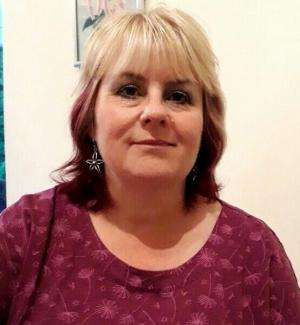This is the devastating impact of poverty on women I support

On Radio 4’s Woman’s Hour, someone recently described women as “the shock-absorbers of society for the impact of poverty”.
This describes precisely what I have seen for the last ten years as a mental health social worker in the community.
I see everything, from disadvantage and oppression to violence and poverty and the generational despair passed from mother to daughter with little hope of change. Women that are depressed, anxious, socially isolated, with poor self-confidence or self-worth. Who have eating disorders, feel paranoid, angry, misunderstood, exhausted, forgotten. Many feel a failure for needing to ask for help.
Roughly half of those that come for their first mental health assessment have experienced some form of abuse. Many experienced sexual abuse as a child or domestic abuse as an adult.
On a Thursday morning in our multi-agency meeting we discuss pages and pages of vulnerable adults that have come to the attention of social services. Or the police due to domestic violence. Or the fire service concerned about unsafe multiple occupancies. Or the housing association managers worried about suicidal tenants. Or families going without heat or food and children not attending school.
So many of these cases are women trying to cope with the never-ending task of keeping a family above water on benefits that are constantly challenged or delayed. They are trying to do it in poor housing that is damp or ghettoised and in neighbourhoods where violence, intimidation and vandalism are common.
The World Health Organisation summed it up well: “Gender-specific risk factors for common mental health disorders that disproportionately affect women include gender-based violence, socio-economic disadvantage, low income and income inequality, low or subordinate social status and unremitting responsibility for the care of others.”
Cuts to public services and funding pulled from the third sector leave a huge hole to be filled by my service with the bar for therapy and social care pushed ever higher. The Care Act doesn’t help, focusing on basic physical needs of a person, not their mental health.
Recently I worked with a mum with two teenage daughters schooled in a facility for non-attendees. The school was unaware the girls took it in turns to look after their mum, weak from an eating disorder and OCD. She looked up at me hollow-eyed from the sofa where she sleeps day and night. She no longer wants to live if more of the same is all her life – years of intimidation from her ex, the malicious calls to school and child safeguarding.
“I was never good enough at home, my OCD came from that, I’ll clean everything when I can with bleach until the skin peels off my hands,” she said.
I liaised with safeguarding, the benefit agencies, a women’s refuge outreach worker and the police community support officer. Against her pleading, she was detained to an acute mental health ward. Months later I heard a knock on my car window and it was her. She said: “Thank you for saving my life. I had every type of therapy going but what I really needed was for you to take away a life of no hope and despair. Now the girls are at college and I’m doing okay.”
Currently I work with a woman living alone in a damp house, eeking out benefits and using the food bank. Her son died from cancer. She nursed him until the end. There’s a long waiting list for bereavement counselling, she’s too intoxicated most days to cope with the loss, the loss that requires her to pay Bedroom Tax on her son’s bedroom.
She’s been referred many times to CPN colleagues but the alcohol gets in the way of any consistent therapy. The result is social isolation, self-neglect and despair with anxiety and depression looming large. My caseload is full of women like this. Taking away poverty, inequality and oppression would significantly reduce their mental health problems.
My message to government is get to the root causes of mental distress instead of sticking plaster promises of more ring-fenced money that my patients and I never get to see.
This article is part of a 10-page special report on poverty, people and social work in the UK in the December/January edition of Professional Social Work magazine. The magazine is part of BASW membership - click here for more details.
